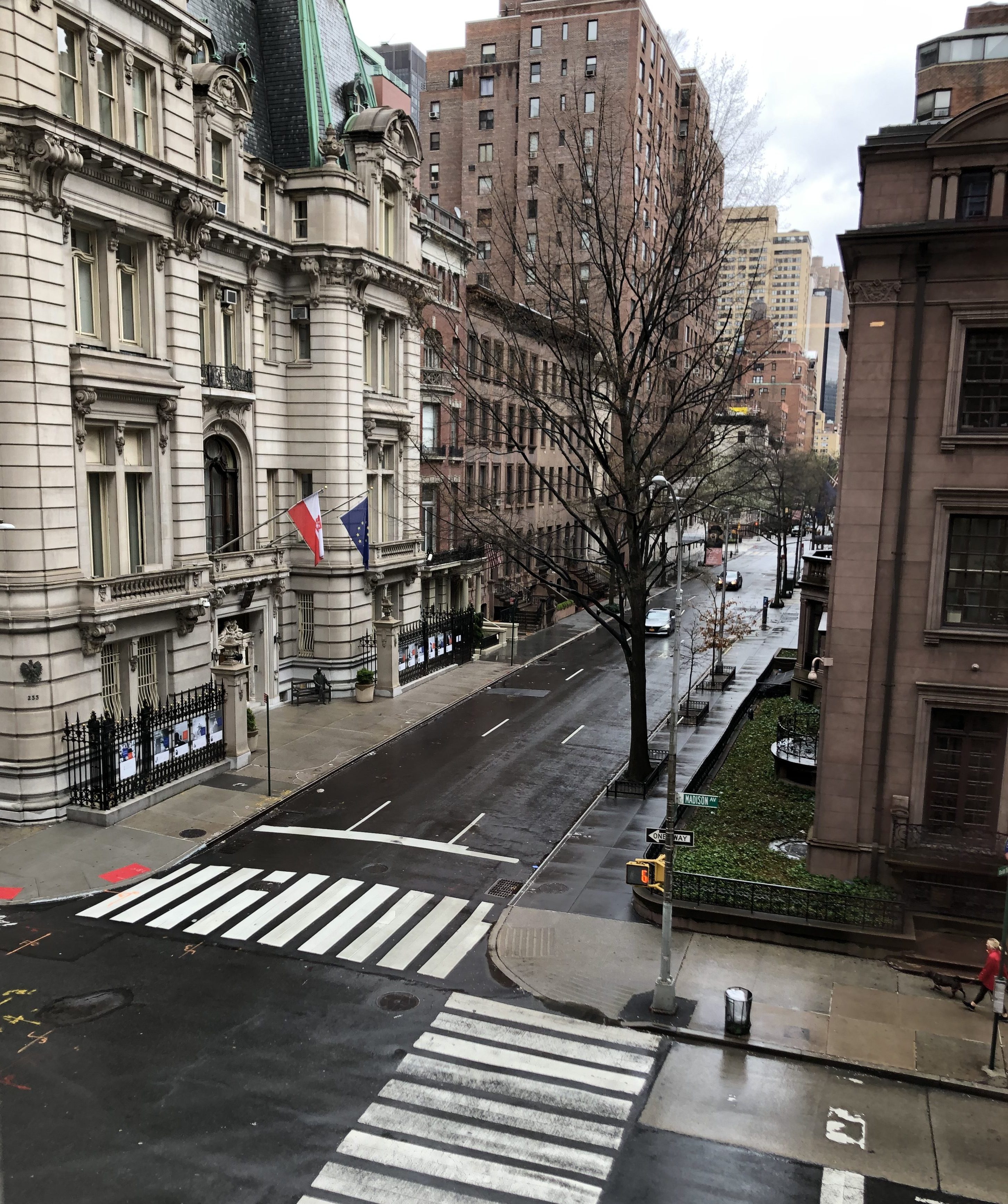Sleep has always been elusive. Even as a child I would stay up late reading or drawing every object in my room until I was finally overtaken by exhaustion. I was one of those people who bragged that I could live on four hours of sleep, even when I was a busy litigating attorney or running a non-profit, perhaps with a five-minute cat nap sometime in the afternoon.
Now I long for sleep as an escape from the worry that erupts in darkness. I share this apartment, renovated within the last five years to our exact style, with a man who has in his history brutal military combat over a six-year period of his youth. He learned how to sleep anywhere, anyplace. And even now, although we avoid the news before we go to sleep, catching up instead on 30 Rock, a show we had never seen to help laugh ourselves into bed. He can put his head on the pillow and fall immediately asleep. I envy him. I have a nightly meditation practice, lovingkindness with generous prayers to my loved ones, the delivery service workers, the homeless men and women desperate on the streets, to all sentient beings. But although the meditation relaxes me, it cannot transport me away from the nighttime that brings out my grief, my fears, my doubts.
I’ve tried homeopathic sleep aids, then Ambien. But after three weeks in pause, in Midtown Manhattan, even sleeping pills don’t work.
Yesterday I meditated with Oprah and Deepak in the morning, participated in the Garrison Institute noontime meditation, sat with Jack Kornfield at 3:00, and still sleep avoided me. I chatted at midnight with Anna, a friend since college with a heart condition and a husband with a twenty-year old borrowed kidney who live just outside Kirkland, the Washington epicenter. I told her about a meditation from earlier in the week. “After swimming in the sea of love and confronting your grief, today you feel like you are in a wet bathing suit with sand up your crotch,” Anna whispered to me. We spoke until her phone battery went red. I read the latest The New Yorker, but I kept on looking out at the desolate streets that are ordinarily so full of people and cars, annoyingly so sometimes when cars raced by after midnight well above the 25 mph limit and the bars stayed open with young drunk people shouting themselves down the street. Back when things were normal.
At night I wonder how we will rebuild this society so that it is fairer, so that people are not forced to expose themselves and their families to danger in order to stay employed during a pandemic. When the same immigrants who fearlessly deliver groceries are treated with dignity and respect, when they are not sacrificing themselves in the hope that they will be granted a thank you, a Green Card, and a road to citizenship. When children in NYCHA housing, the vast public housing system in New York City, will be able to connect to WIFI so that they don’t miss out on vital learning while paused. When men of color are not herded into jails, because they are considered a threat, a projection of white supremacy with its roots in slavery and now a business of policing, courts, jails and prisons, probation, and permanent disenfranchisement. When working from home isn’t a class issue.
This morning Jeff, a younger neighbor, called to chat. He is working from home as is his wife. When they go out for groceries, they always text so that they can pick up a few items for us. Jeff calmed me this morning, in the wake of another sleepless night and failed grocery deliveries yesterday. He wanted to reassure me that he would get the foods that we needed. Jeff then suggested, after so many shared meals and bottles of wine at our dining table, that perhaps this pause in my retired life, a balance of service and indulgence in New York City culture, was allowing me to be more reflective, and in doing so, in having so many hours when I was no longer productive, that the act of looking inward was as frightening to me as is the virus.
Jeff is a wise man.
As we pause, we learn that friendship is not reserved for the good times, but that we need each other in ways we never imagined, because we are in a situation we could never imagine. And in looking inside, in seeing our value as individuals, as residents of a city, as members of a society, we must stand starkly without all of these privileges and pledge ourselves to recreating a more just and equitable civil society. Without acknowledging these privileges, we will never be able to listen to other people’s stories of the corona virus with the empathy, compassion, and the rage that we need to smash through our biases and assumptions to rebuild our communities and nation.


